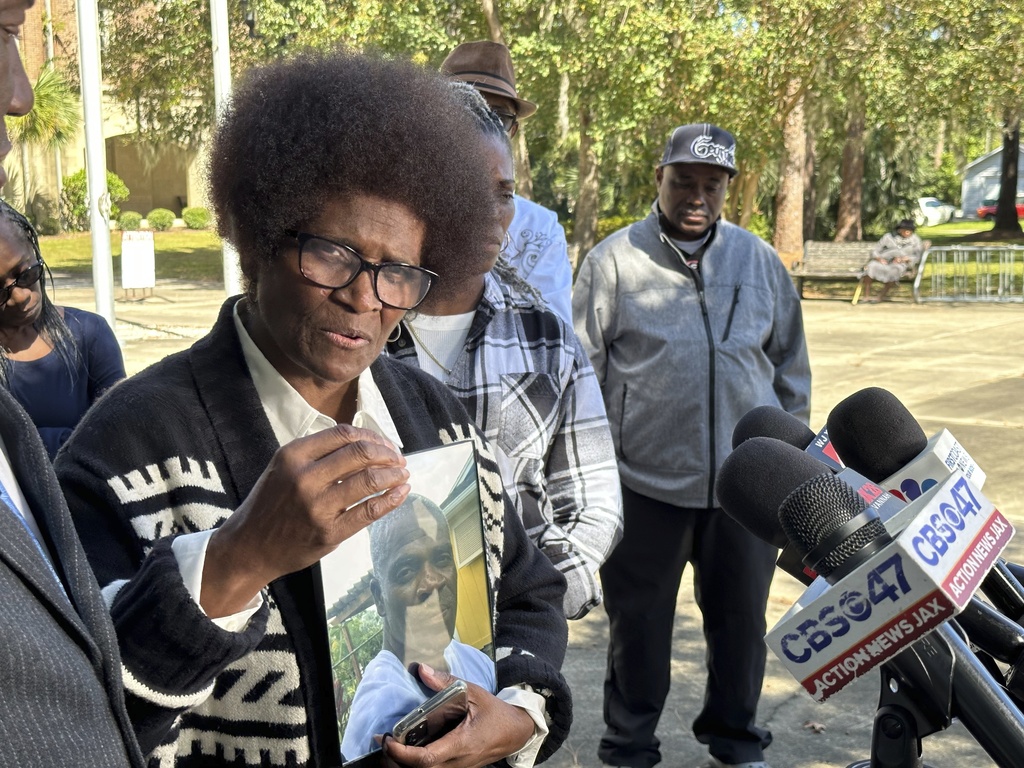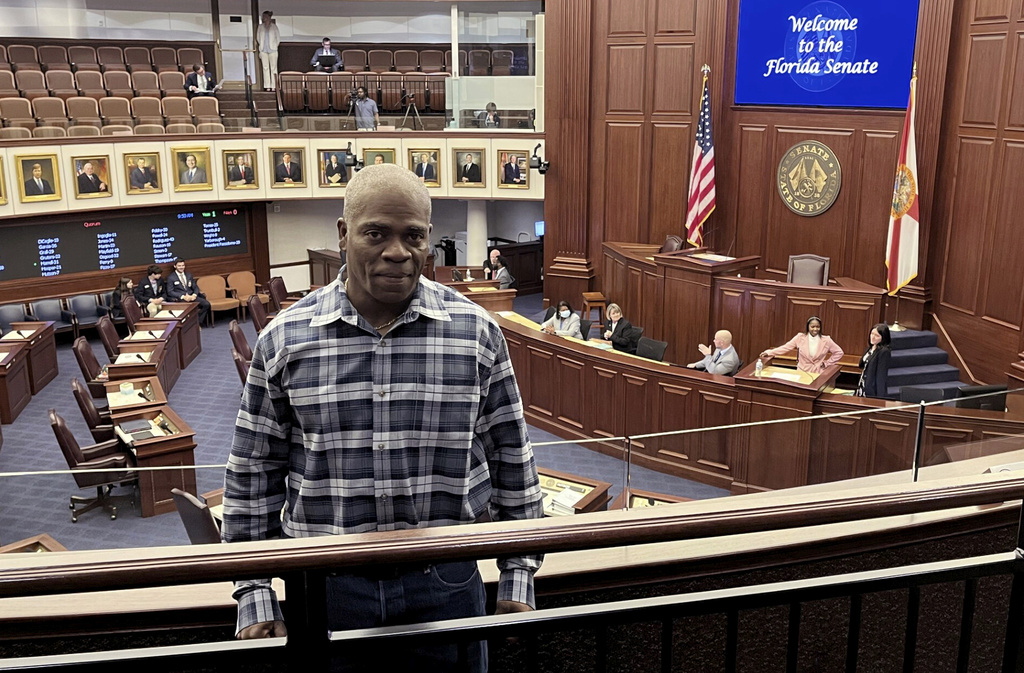Historically, Black men are more likely to be wrongfully convicted and killed by police than their White counterparts.
Leonard Cure experienced both.
What was supposed to be a chance to make up for lost time ended in tragedy after another consequential contact with the justice system.
Cure, a Florida man who was exonerated after spending 16 years behind bars, died Monday after a sheriff's deputy shot him at a traffic stop.
Georgia's Camden County Sheriff's Office has now released dashcam and bodycam footage of the incident, which is graphic in nature.
The video shows Cure speeding on Interstate 95 and the sheriff's deputy pulling him over thereafter.
Cure is told to get out, walk to the back of the vehicle and put his hands on the truck. He initially refuses before being threatened with a taser.
"Get out! Put your hands back here," the officer is heard yelling.
"I ain't doing s***," Cure responds.
The officer continues to point a taser gun at Cure while the 53-year-old has his hands on the back of his truck. When the officer attempts to cuff Cure, Cure breaks away and questions why he's being arrested.
"You passed me doing 100 miles an hour," the officer said.
"OK, so that's a speeding ticket right?" Cure said.
When Cure takes one of his hands off the vehicle, the officer fires his taser.
After Cure is hit, he flails his arms seemingly to remove the stun gun wires and then grabs the officer, who fires his taser again.
As the two men wrestle next to the highway, Cure grabs the officer's face, and the officer pulls his baton.
Shortly afterward, the officer fires one shot, and Cure falls to the ground.
Emergency crews arrived at the scene and carried out CPR on Cure, who could be seen bleeding from his side, but Cure died.
 AP
AP
Civil rights attorney Ben Crump condemned the shooting in a press conference with Cure's family.
"Those words that you're going to be arrested and going to jail after being wrongfully convicted all those years probably triggered him, and again, it is escalated on both parties' part, the citizen and the officer," Crump said.
"There was no attempt to de-escalate. None whatsoever," said Michael Cure, Leonard Cure's brother.
Thaddeus Johnson, senior fellow with the Council on Criminal Justice and a former law enforcement official in Memphis, Tennessee, said it was a "justifiable shoot" legally.
"However, things can still be lawful but awful at the same time," Johnson said. "Officers can use a level of force above the level of resistance that they're facing, and so if somebody is throwing hands at officers, officers don't have to throw hands."
 The Innocence Project of Florida
The Innocence Project of Florida
The Georgia Bureau of Investigation is reviewing the incident, and the officer involved has been placed on administrative leave.
Cure was convicted of armed robbery in 2003 and was sentenced to life in prison due to previous convictions of robbery and other crimes.
He had served 16 years of his sentence when a judge vacated Cure's sentence due to a conviction review team in Broward County, Florida, finding conflicting alibis and no solid evidence in the case.
The Innocence Project of Florida, which represented Cure in his exoneration case, said Cure had held a steady job since his conviction was overturned in 2020. It said he had been in the process of buying a home with compensation money from the state when he was killed.
"Lenny was doing well and aspired to attend college for music production and start a career in the music business," said Seth Miller, the organization's executive director. "Sadly, his life was tragically cut short."






